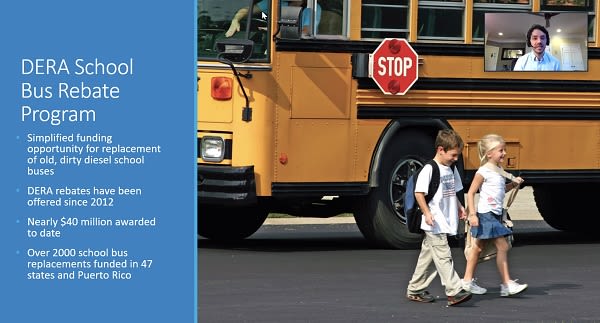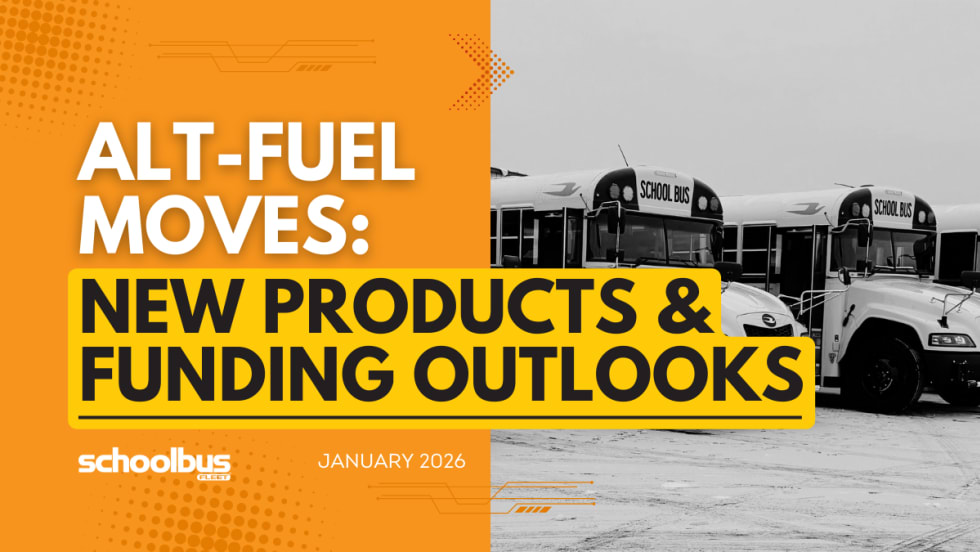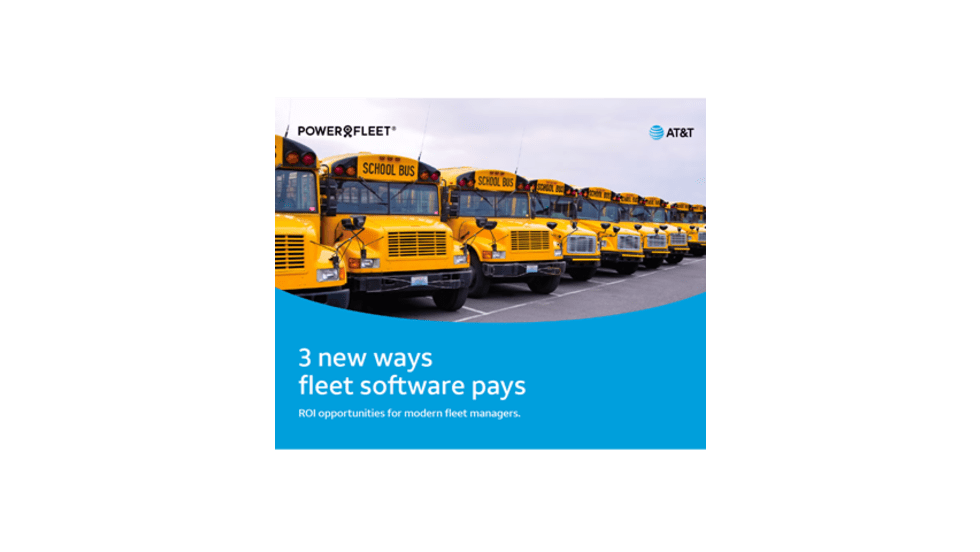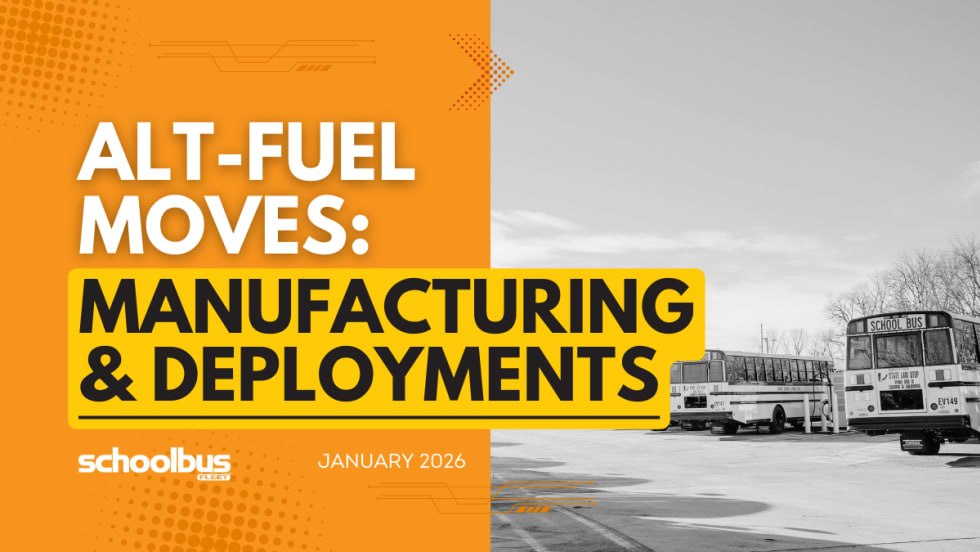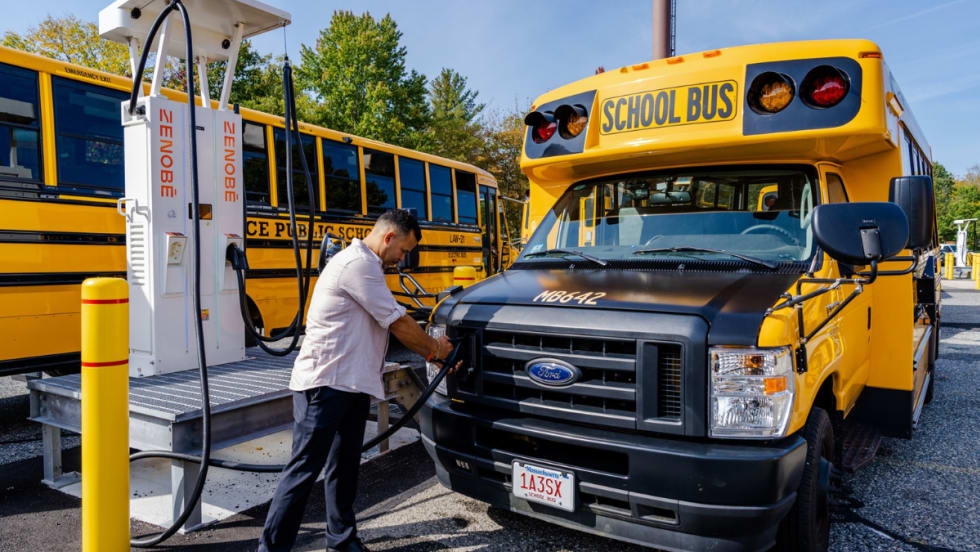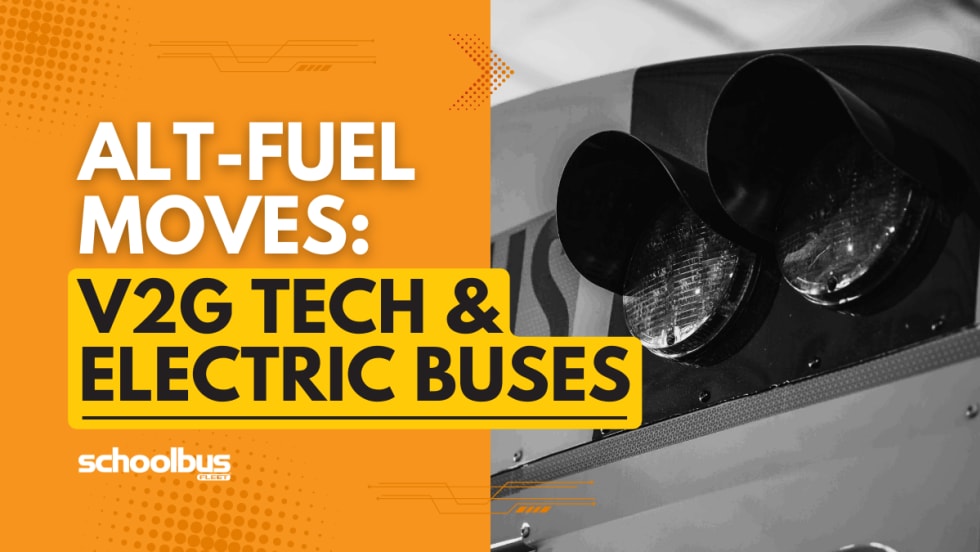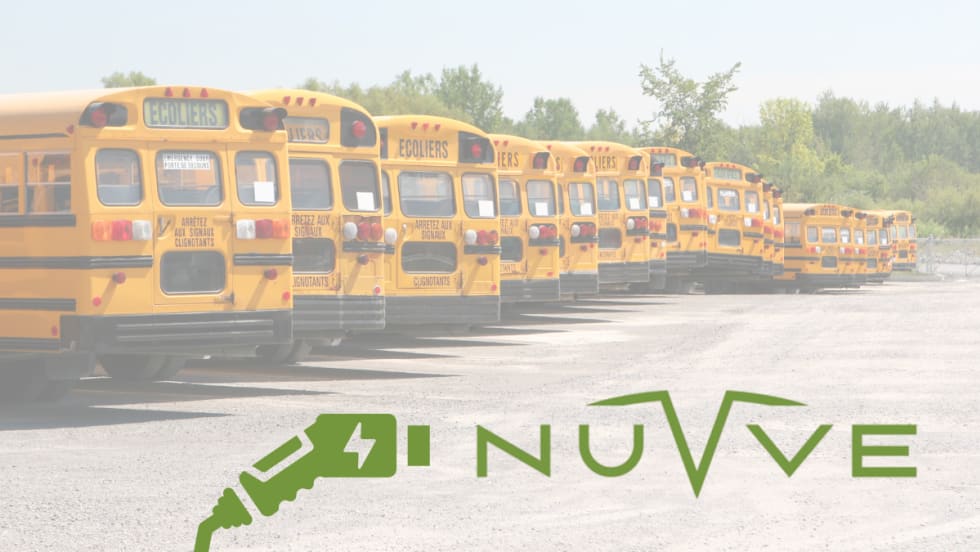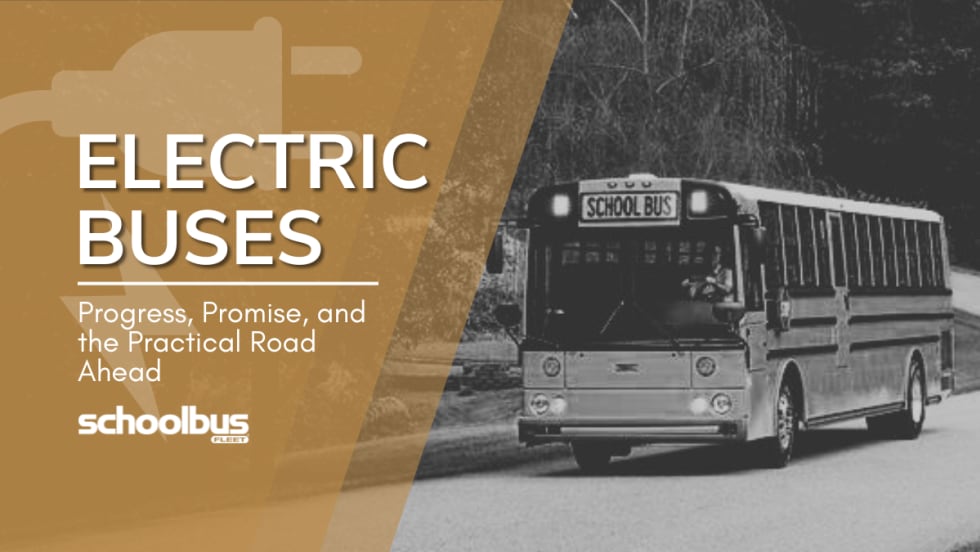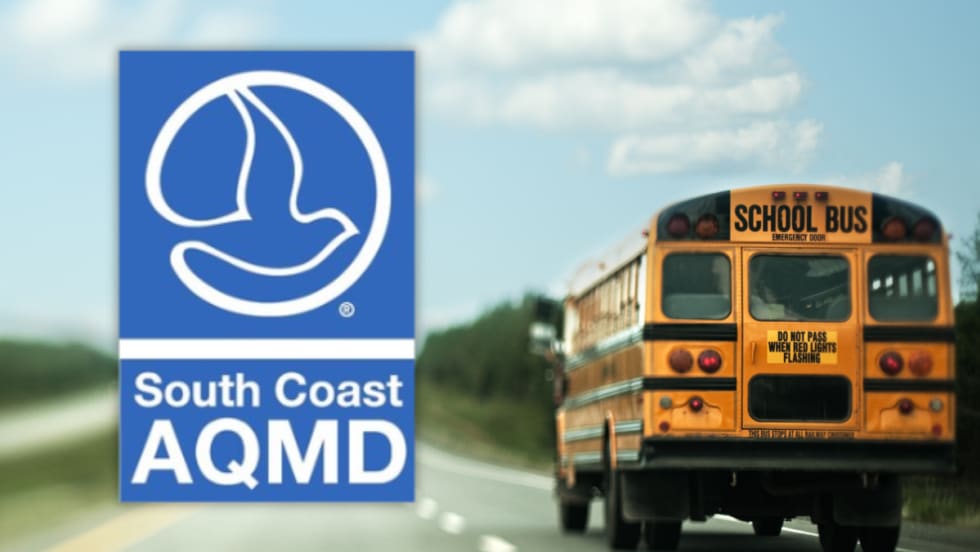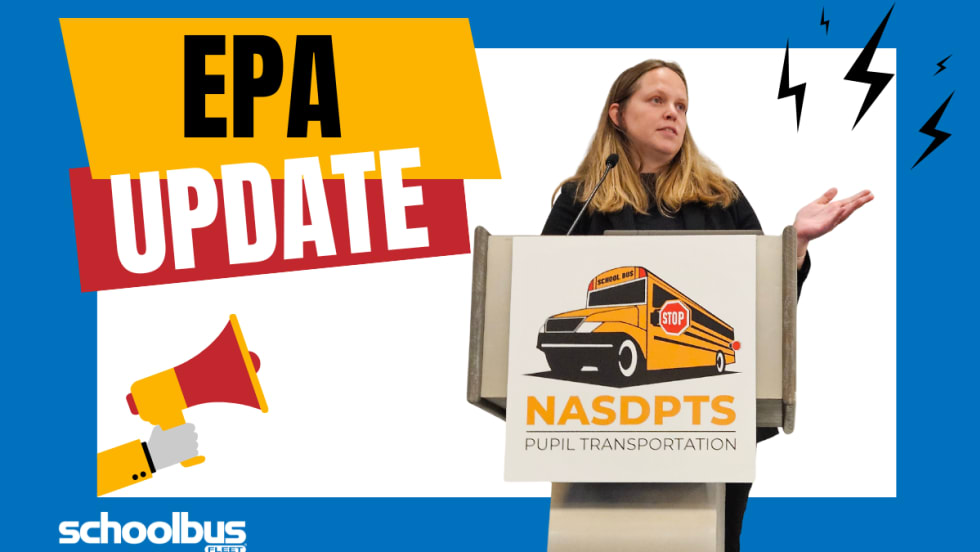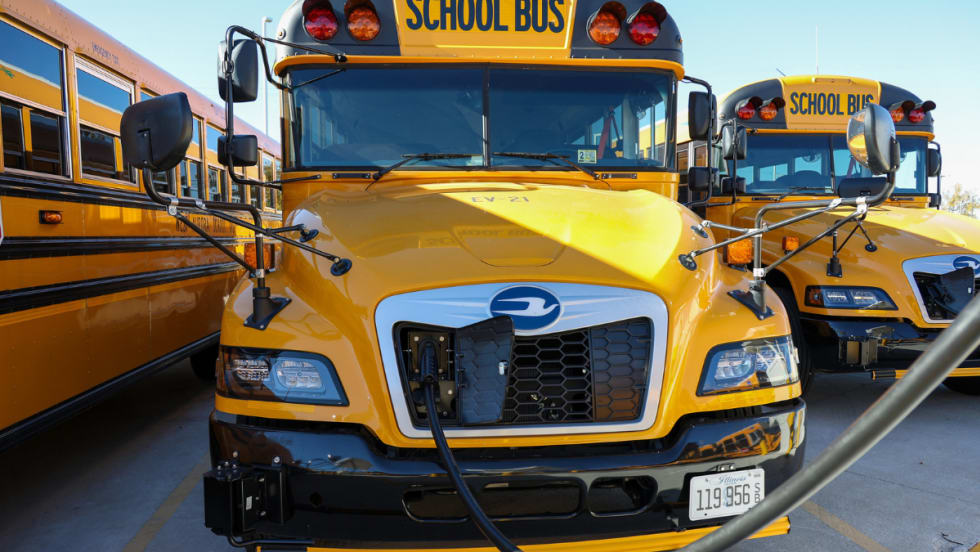As many school districts look to adopt low, near-zero emission school buses, the need for funding these vehicles remains a hot topic in the industry, and that was largely the case during a virtual workshop held by the National Association of State Directors of Pupil Transportation Services (NASDPTS) on Monday.
During the workshop, Jason Wilcox, a representative from the U.S. Environmental Protection Agency’s (EPA) Legacy Fleet Incentives and Assessment Center, detailed a number of funding opportunities for pupil transportation, from national, state, and tribal grants to the EPA’s Diesel Emissions Reduction Act (DERA) school bus rebate program.
As previously reported, this year the EPA announced that over $10 million in DERA funding would be available to public and private fleet owners for the replacement of aging diesel school buses with new school buses that meet the agency’s cleanest emission standards. Fleet owners who submitted applications would receive $20,000 to $65,000 per bus for scrapping and replacement depending on the fuel type of the replacement bus.
Wilcox told workshop attendees that this was the first year the agency would base each rebate amount on fuel type rather than bus size as in previous years. While this change wasn’t directly related to the challenges of the COVID-19 pandemic, Wilcox listed several other changes to the rebate program that were.
One of those changes was to the rebate application’s school bus usage requirements, specifically for the buses fleet owners are seeking to replace. The application was updated to accommodate fleets that may have seen reduced school bus use due to school closures brought about by the pandemic.
“We've just added some flexibility to those [requirements],” Wilcox said. “We don't want to replace a bus that's just sitting in a yard not getting any work. We want to take those buses off the road. We think that [these requirements] should help a lot of fleets be eligible [for the program] even if maybe their buses have not seen as much use within the last seven or eight months.”
Another change to the program for 2020 included a cap to the funding amount awarded to each applicant.
“We were a little concerned that you could have some fleets come in requesting a lot more,” Wilcox explained. “We were concerned that a fleet would come in asking for 10 electric bus replacements, and then they would be getting a really an inordinate amount of funds compared to other fleets. So that’s why we did cap the rebate amount at $300,000.”
The EPA is currently in the process of making selections for its 2020 DERA school bus rebate recipients. The agency plans to announce the final selections for the rebates in January or February 2021. Those selected fleet owners would need to have their aging diesel buses scrapped and replaced by September or October 2021, according to Wilcox.
This year, the EPA received a total of 489 applications requesting a total $40 million in rebates across 41 states. Most of those applications came from the Midwest region, Virginia, Florida, Louisiana, and California, according to Wilcox. He also said that 18 of those submitted applications included requests for at least one electric school bus.
While funding for 2021 is still being decided, Wilcox said pupil transporters could expect the next round of rebates in October 2021.




